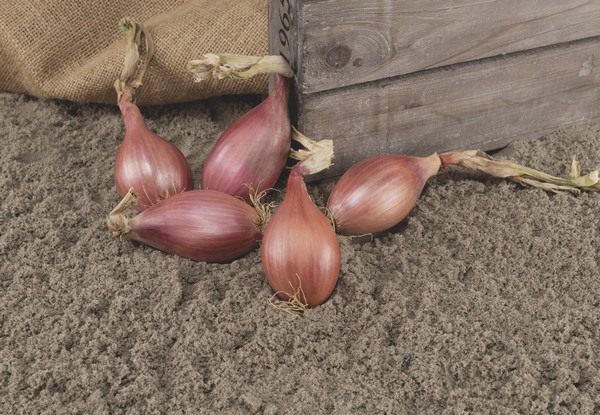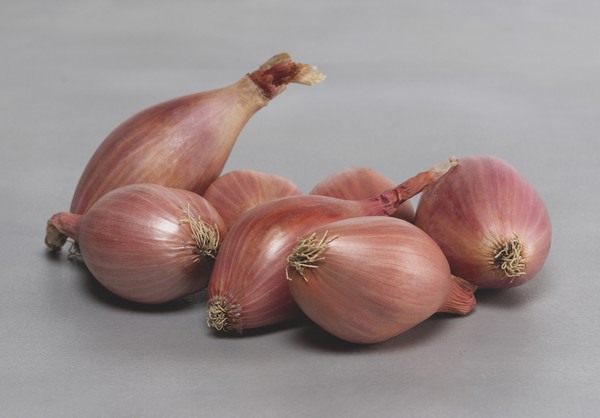After years of breeding work, Bejo and De Groot & Slot are presenting a seed shallot with high resistance to downy mildew on the market. The variety called Innovator is the first of its kind. We spoke with Bejo Germany Managing Director Pieter Gabriëls about the development.
Resistance is an important topic in the onion market, both for conventional and organic onions, but it is not the only aspect that goes into breeding: "There is a lot of talk about resistance, but for growers of conventional onions and shallots, yield and storability are the most important attributes. Then comes resistance, because there are fewer and fewer pesticides available to growers." The Innovator is highly resistant to downy mildew, which means that even in the event of an infestation, it does better than known varieties.
Holger Pohl and Pieter Gabriëls at the Bejo stand at expoSE 2019.
For organic farmers, this highly resistant variety plays an even greater role: "In the case of organic production, resistance such as this is a top priority. Without pesticides, growers depend on resistance to diseases and insects.
However, the work is not yet done; further research is needed on other resistances, for example against Fusarium. "The area under onion cultivation in north-western Europe is increasing, and disease pressure is growing accordingly."
Not just a "small onion"
Another advantage of the Innovator is its distinctive colour and uniformly elongated bulb: "Shallots are characterised by their sweetness and pungency in terms of taste, which is why they are highly appreciated by consumers. However, the shape of the shallot is also important so that it can be recognised as such in the shop. A longer bulb ensures that the shallots are not just mistaken for a small onion," explains Gabriëls. On the marketing side, this is important for the added value of the product as well.

The breeding of the Innovator already started in the 1980s. How do you create a variety that is still relevant to the market 30 years later? "Of course, high resistance to downy mildew is not the only factor that goes into breeding. The beginnings of Innovator date back to the 1980s, but in the course of natural breeding, crossing and selection we have developed additional characteristics such as elongated shape, several growing points, dry matter content, hardness and good skin quality. So the variety is also perfectly adapted to the market demands of 2021."
Still a small share of production
According to Gabriëls, the share of shallots in German cultivation is still quite small. "Both red onions and shallots are still below 10% of the total, but we see an interesting growth. Consumers are thinking more about cooking and their health, and shallots are establishing themselves as a high-quality alternative to onions."

This means it is in Bejo's interest to develop seed shallots that will make this trend profitable for the growers. "Our Innovator shallots will result in a more uniform end product and they will be easier to store. This means the shallots are more comparable to onions, making them more attractive to growers."
For more information:
Pieter Gabriëls
Bejo Samen GmbH
Danziger Straße 29
47665 Sonsbeck
T +49 2838 98989-0
E info@bejosamen.de
W www.bejosamen.de/
